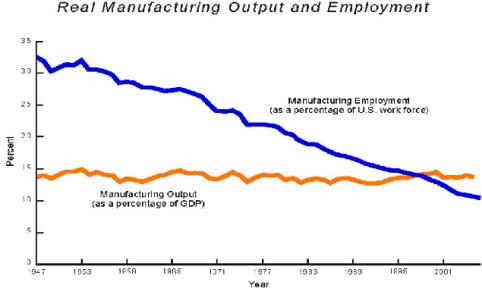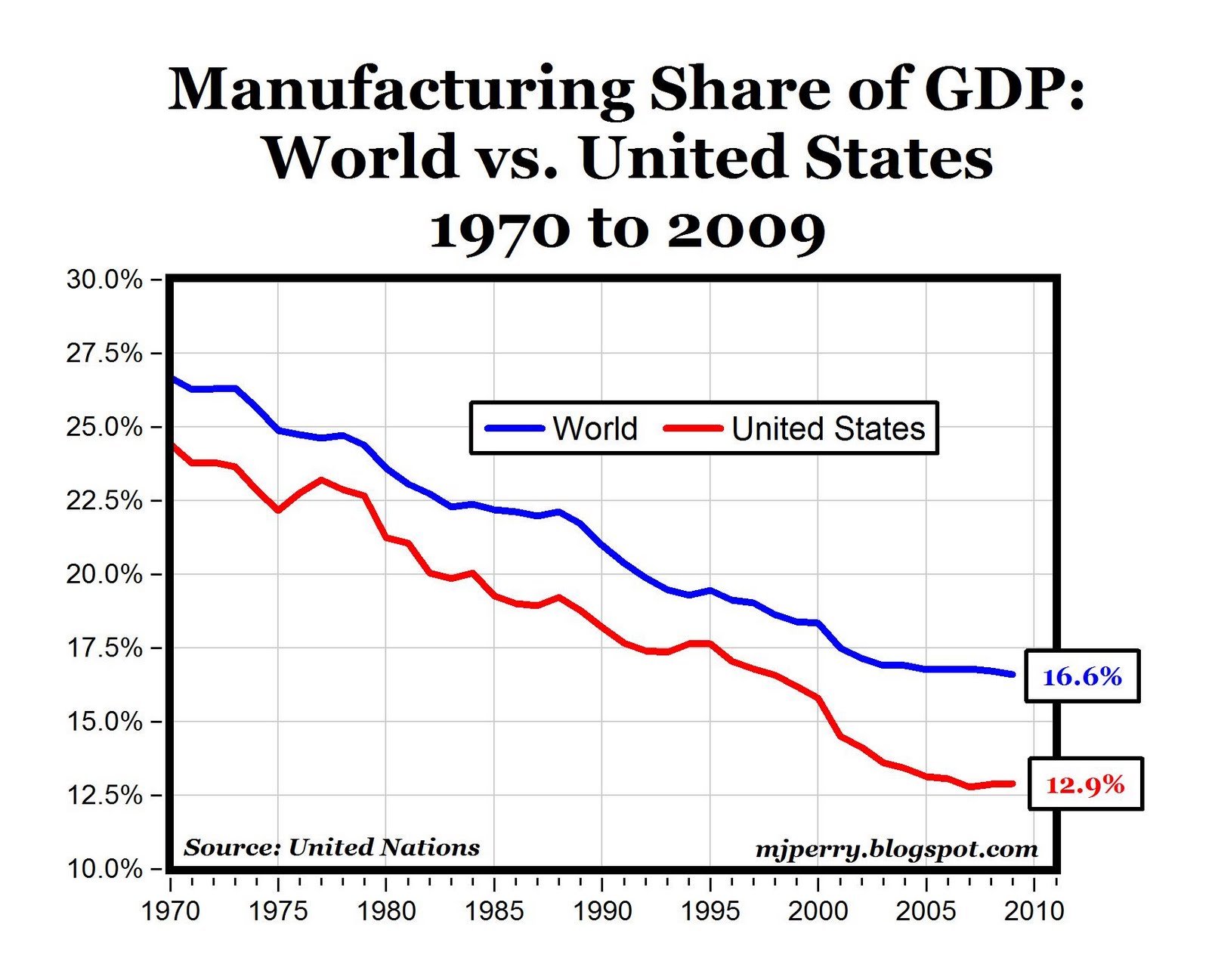glenn1
Lifer
- Sep 6, 2000
- 25,383
- 1,013
- 126
who gives a shit about the rest of the world. i care about what goes on in my backyard.
The rest of the world gives a shit about the rest of the world. Your focus might be the U.S. and "what goes on in your backyard," but the rest of the world isn't standing still either. They will actively and aggressively pursue their own manufacturing to compete with higher cost U.S. manufacturing, which was my entire point.
If nothing else, U.S. based manufacturing has already shifted to markets and products where the value-add they provide overcomes the cost advantages of places like China. U.S. manufacturing has upgraded from a base of numerous low value-add sectors like textiles to higher value-add sectors like aircraft production. The U.S. is manufacturing just as much stuff, it's just higher-end goods and with higher productivity (i.e. fewer workers). Automation and efficiency in manufacturing frees up excess workers to create value in other sectors, and thus creates higher economic activity in the end than leaving them in low value-add manufacturing jobs.


http://mjperry.blogspot.com/2011/04/decline-of-manufacturing-is-global.html


